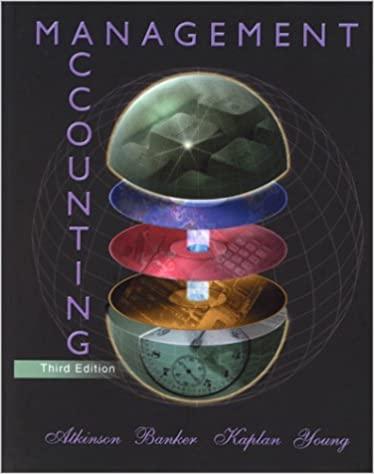Question
In each of the following unrelated situations (A thru F), the auditor may have to modify the standard audit opinion. Situation A Your client, Charity
In each of the following unrelated situations (A thru F), the auditor may have to modify the standard audit opinion.
Situation A
Your client, Charity Work (CW), is a not-for-profit entity with average annual revenues of
$750,000. The operating expenses are mainly funded by Private Foundation (PF) and fund
raising for capital expenditures is the responsibility of CW.
During the year, a benefactor donated land and a building to CW that were recorded at a
nominal value because PF provides only operating funds and is not interested in seeing
amortization expense reflected in the financial statements. The cost of an appraisal of the fair
value of the property would not be funded by PF.
Situation B
Your client, Childrens Club (CC), is a registered charity with a November 30 year-end.
Revenue sources include fundraising events, donations from the United Appeal (UA) and
fee-for-service revenue from the provincial government.
An important fundraising method used each year is CCs October door-to-door fundraising
campaign. Local volunteers are randomly assigned to teams of two canvassers and provided
with appropriate identification; they are instructed to issue receipts for all donations in excess
of $5.00. The funds raised in the community have not exceeded the materiality level you set
in prior years audits.
Another source of funding for CC is UA. CC forbid you to confirm the funds receivable
from UA because the bookkeeper at UA is a volunteer and is inundated with these requests.
The funds are distributed each year in January, but the amounts are determined on the basis
of the results of certain programs run by the recipient organization; the funding
announcements are made on December 24 of each year.
Situation C
On March 1st, your firm has accepted the engagement to audit a car dealership for the
year-ended December 31. This is a new audit engagement, and the company has
previously only had a compilation (Notice to reader with no assurance) for the purpose of filing income tax returns. You were unable to verify the opening inventory for this company. The inventory balance is a material item.
Situation D
The controller of Fair City Hotels Co. Ltd. will not allow you to confirm the accounts
receivable balance from one of its major customers. The amount of the receivable is not
material. You were unable to obtain sufficient and appropriate evidence by alternative
procedures.
Situation E
Your firm has completed the audit of the financial statements of a bus company for the
year-ended December 31. Prior to this year, the company had been depreciating its buses
over a ten-year period. During the current year, the company determined that a more
realistic estimated life for its buses was 20 years, and computed the depreciation on the
basis of the revised estimate. The company did not agree to disclose the change in useful
life because they know that depreciation is not a deductible expense for tax purposes.
Situation F
During the year-end audit field work, you learned of heavy damage to one of your client's two manufacturing plants as a result of a recent fire. The plants were used as the main manufacturing location and also to store inventory. The insurance company has informed the client that the loss will not be reimbursed. The client will not disclose the loss caused by the fire since the fire happened after the year-end.
Required:
Provide a supported conclusion on the appropriate audit opinion for each of the above situations. For each situation discuss the appropriate changes to the standard audit opinion that could be required.
Step by Step Solution
There are 3 Steps involved in it
Step: 1

Get Instant Access to Expert-Tailored Solutions
See step-by-step solutions with expert insights and AI powered tools for academic success
Step: 2

Step: 3

Ace Your Homework with AI
Get the answers you need in no time with our AI-driven, step-by-step assistance
Get Started


